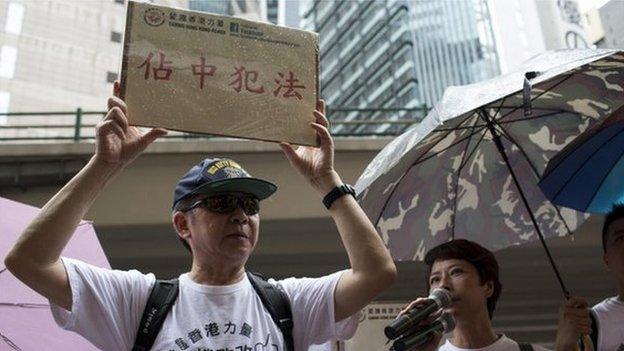Hong Kong's parliament: A chaotic show that reveals deeper concerns
- Published
Two newly-elected pro-independence MPs have tried to force their way in to be sworn in at Hong Kong's legislative assembly.
When is an oath an oath, and when is a law the law? Right now, in Hong Kong, even such seemingly straightforward questions are subject to heated debate.
There's been three weeks of chaos in Hong Kong's legislative council (LegCo), the territory's parliament, ever since five lawmakers had their oaths rejected, external last month - for adding or subtracting words, reading too slowly, or using derogatory language.
Three of them have since been able to retake their oaths, and take their seats in parliament.
But the Hong Kong government (and, if you believe the rumours, the Beijing government) seems determined to stop two of the most controversial lawmakers, Yau Wai-ching and Sixtus Leung, from joining parliament.
Why is there chaos in Hong Kong's parliament?
Hong Kong rebel lawmakers protest China at oath taking
Who are the new faces in Hong Kong politics?
Hong Kong's elections in five insults
It's not surprising that the government is unhappy with them. During their oaths, the two lawmakers, from Youngspiration, expressed support for Hong Kong's independence from China, and used a derogatory term to describe China.

Yau Wai-ching laid out a banner with the word "Hong Kong is not China" before making her first oath
And ever since their oaths were invalidated on 12 October, the whole parliament has been caught up in a dramatic (and slightly bizarre) cat and mouse game:
On 18 October, the government suddenly launched a legal challenge into Ms Yau and Mr Leung's right to retake their oaths, and demanded they be blocked from parliament pending a judicial review. The judge refused to grant an injunction, but did allow a judicial review.
On 19 October, Ms Yau and Mr Leung were invited back by the LegCo president to retake their oaths. But they were thwarted by pro-Beijing legislators, who staged a walk-out - leading to an insufficient quorum and the parliamentary session being cancelled.
The next week, the LegCo president said he had changed his mind, and would no longer let Ms Yau and Mr Leung take their oaths until the legal challenge was concluded. But Ms Yau and Mr Leung barged in anyway, as pro-democracy legislators formed a human chain to get them into the chamber. Amid the chaos, parliament was adjourned.
And on 2 November, Ms Yau and Mr Leung ran in again, and tried to retake their oaths. Security guards tried to physically carry them out - but were obstructed by pro-democracy lawmakers who surrounded them and lay on the floor to stop them. Again, parliamentary proceedings were halted.
Both sides blame the other for paralysing parliament.
But there's a deeper reason for the political stunts and theatrics. Amid Hong Kong's uncertain political future, few feel ready to compromise - and even small things have become significant.
For example - when is an oath actually an oath?
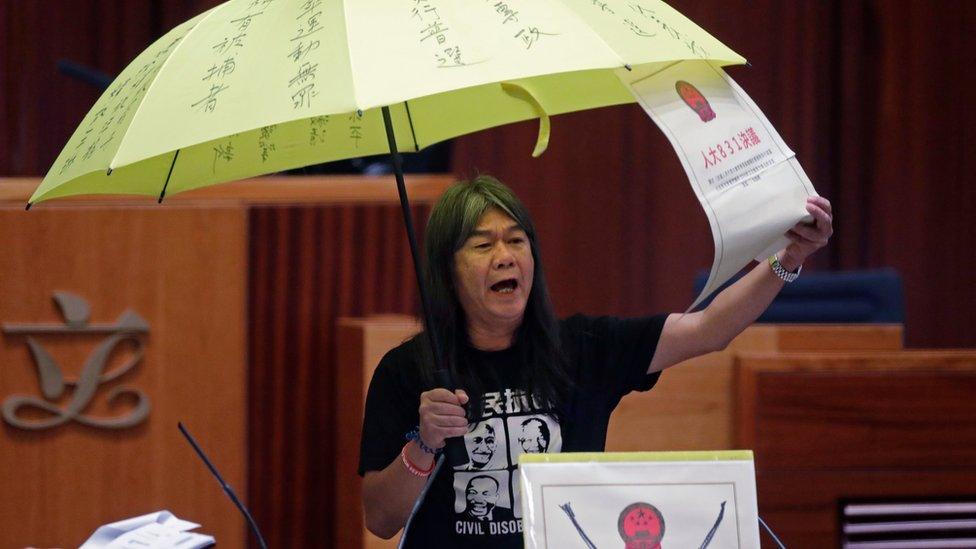
Oath-taking is a colourful process - and an opportunity to protest - in Hong Kong's parliament. But changing the wording of the oath could land you in trouble
Many have argued that legislators should read out the wording of the standard oath completely, with no deviation at all, for the oath to be valid.
But critics have accused the government of double standards, and say that Hong Kong's leader, CY Leung, also missed out the words, external "Hong Kong" when he was sworn in in 2012.
And on Wednesday, after rushing into parliament, Ms Yau told reporters that she had read out her oath, and so had been officially sworn in - despite the LegCo president telling security to remove her.
This was mocked by pro-Beijing legislator Lo Wai-kwok, who said: "If someone runs into the chamber, says a bunch of stuff and then claims to be sworn in, that's absurd... if they [Ms Yau and Mr Leung] cared so much about the oath they wouldn't have used the oath as a platform to promote their pro-independence agenda the first time they were being sworn in."
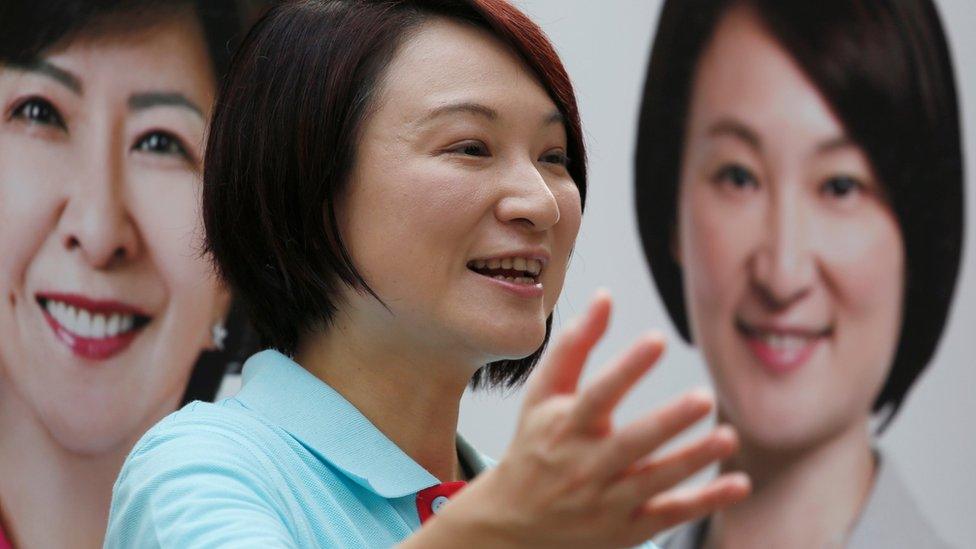
Pro-Beijing MP Starry Lee also condemned pro-democracy legislators for disrupting parliament
The degree of scuffling in Hong Kong's parliament is unprecedented. But things may be about to step up a notch.
That's because there are widespread reports that the Beijing government may be about to intervene directly - by issuing an interpretation of Hong Kong's law to disqualify the legislators permanently.
So, onto the second question: When is a law the law?
Legally, external, the Chinese government does have the right to interpret Hong Kong's laws.
But it's only done so four times since Hong Kong was handed back to China in 1997 - and most of its interpretations have been controversial, as legal experts claimed they undermined Hong Kong's judicial independence.
Under the terms of the handover, Hong Kong is meant to enjoy a high degree of autonomy, and its own legal system.
So an interpretation from Beijing is something that many people on both sides of the political spectrum are uncomfortable with.
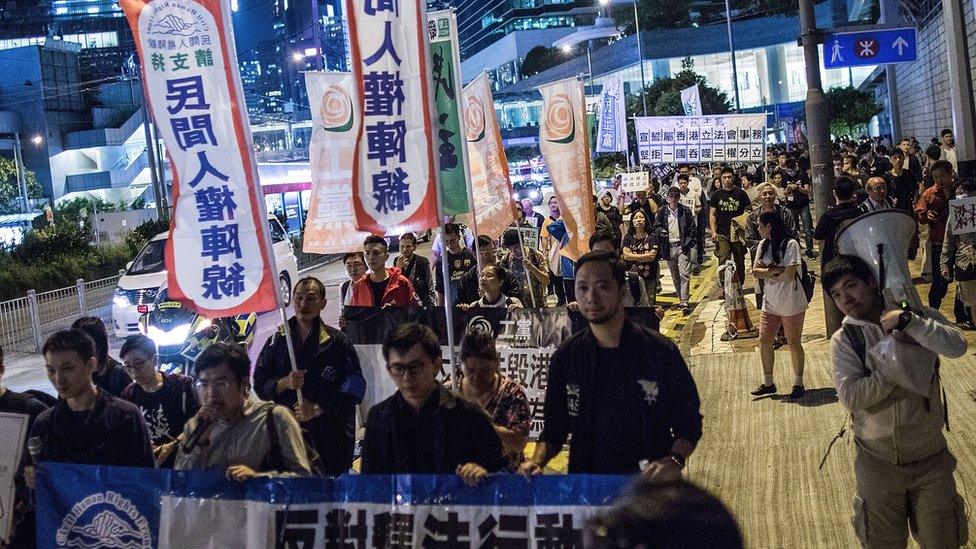
Hundreds of people took to the streets on Wednesday, after rumours Beijing was set to interpret Hong Kong's law
Pro-democracy lawmaker Alvin Yeung, a barrister, told the BBC that any interpretation handed down from Beijing would "definitely damage the image of [Hong Kong's] judicial independence, and bring harm to Hong Kong in general".
If China did make a ruling before or during the current court case, that "would be a most disrespectful act to the Hong Kong courts", he added.
Pro-Beijing lawmaker Regina Ip was also reluctant to endorse an interpretation.
"The benefit of an interpretation from Beijing is that there'll be a quick result," she told reporters. "The negative is that of course it affects Hong Kong's rule of law... and suggests we can't solve problems ourselves."
When asked directly if she'd support an interpretation, she replied "I don't know", saying there were arguments on both sides.
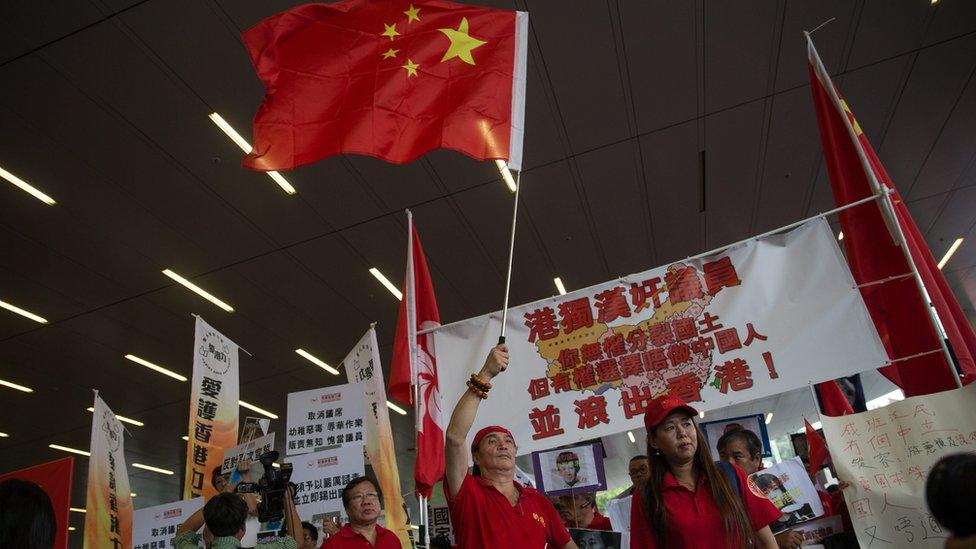
Thousands of pro-China protesters have demanded Ms Yau and Mr Leung apologise for insulting China
If China does make an interpretation, it is likely to win the battle - but lose more hearts and minds.
Hundreds of people have already turned out at a demonstration against the rumoured interpretation.
And Sixtus Leung summed up the anger: "Our whole electoral process is being messed about. At this rate, what's the point of elections? You may as well just get China to nominate everyone."
- Published3 September 2016
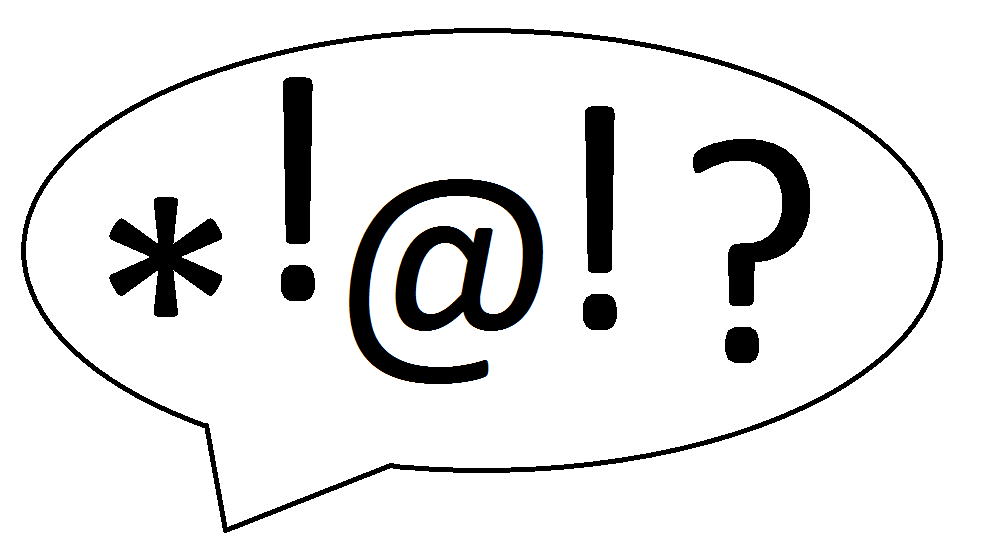
- Published18 June 2015
